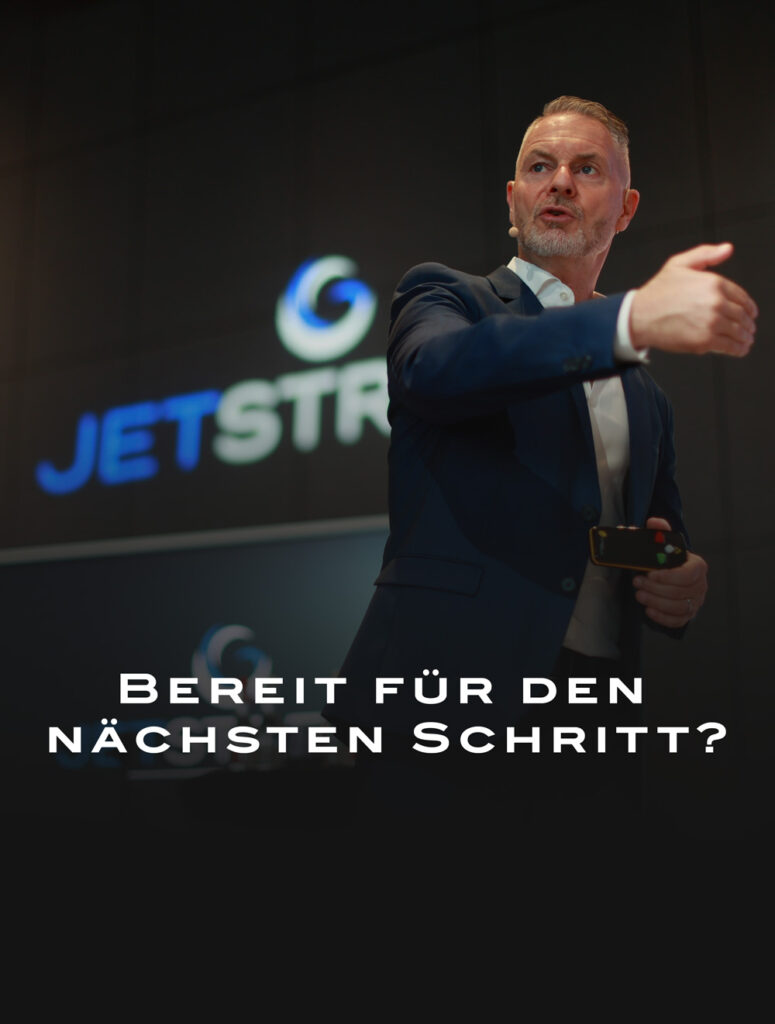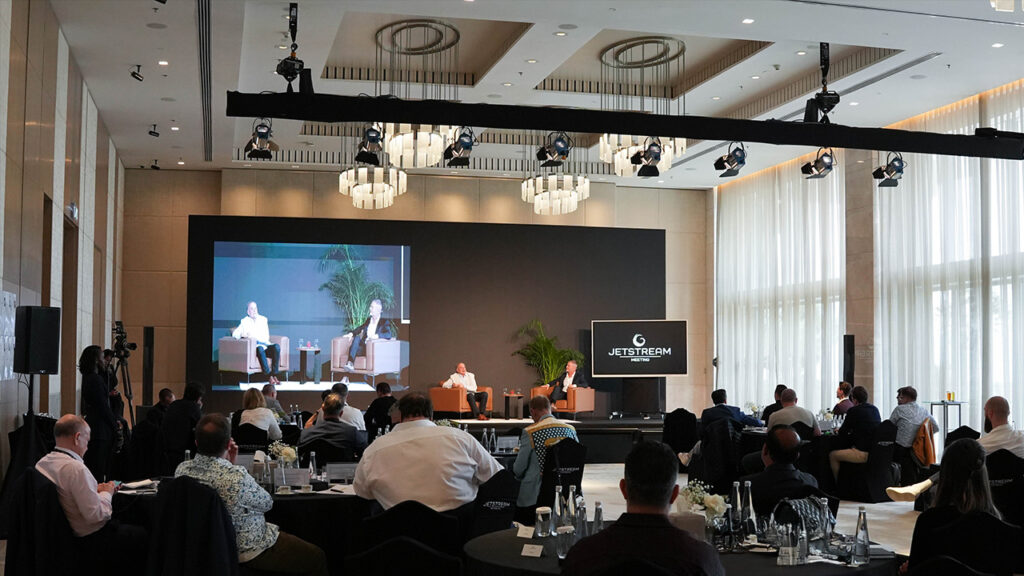"Never before have SMEs faced so many simultaneous challenges"says Dirk Kreuter - keynote speaker at Jetstream events and one of the most widely read sales experts in Europe.
Inflation, supply chain problems, rising wages, gaps in digitalisation and a noticeable reluctance to buy all come together.
Dirk Kreuter does not use this situation as an excuse, but rather as a steep pitch.
He identifies seven levers that companies can use to gain market share right now.
1. inflation as a pricing turbo
Price increases have never been as easy to implement as they are today.
Whether supermarket, petrol station or trade bill - the customer sees rising figures everywhere.
Those who ignore the situation are giving away contribution margins - and jeopardising their future investments.
Why increases are mandatory
Even if your margin seems solid at the moment, it will be eaten up tomorrow by higher purchase prices, energy costs and wages. Kreuter therefore advises:
"It's not about need, but about the maximum market price."
Practice 2025: Communicate price increases early and transparently. Link them to added value - faster delivery, improved service, higher quality. Customers are more likely to accept surcharges if they can see where the extra money is going.
2. rethinking supply chains - diversity instead of dependency
Containers are missing, chips are in short supply, spare parts are delaying projects.
The problem is exacerbated when companies rely on a "House and court suppliers" set.
Dirk Kreuter describes a plumbing company that had a delivery time of two years because of a single heat pump manufacturer - turnover was zero.
The strategy
Build a international pool of suppliers on.
If you validate ten to twenty producers in different currency and customs areas today, you can react flexibly tomorrow.
At the same time, it pays to invest cash in stocks. Stock values grow in line with inflation, while account balances shrink in real terms.
"Establish several international suppliers now and become independent"emphasises Dirk Kreuter.
3. rising wages? Raise prices instead of capping salaries
Wage increases are not a nuisance, but an expression of fair participation. Employees have lost up to 40 % in purchasing power in twelve months. Those who push down salaries now are driving the best to the competition.
The solution
Refinance higher wages through smart pricing (see lever 1) and process optimisation.
At the same time, the narrative exposes "Skilled labour is in short supply" as a set of beliefs.
Hundreds of thousands of skilled workers fulfil your requirement profiles - they are just working somewhere else.
Employer branding and Systematic recruiting make you visible and attractive.
4. digitalisation: process instead of software
Many companies believe that digitalisation means the introduction of a "best" Software.
Dirk Kreuter disagrees.
The real gain comes when you question your processes when digitising: Do we even need this step? Is this release still necessary?
Digital processes don't make people ill, don't make mistakes, don't make salary demands. They save on labour costs or enable people in the team to perform higher-value tasks. At the same time, any automation forces you to be clear about your business model.
5. reluctance to buy part I - sales offensive instead of waiting loop
Not since the Second World War has there been so much restraint in B2B and B2C.
If you don't have a strong sales organisation now, you will lose orders.
Dirk Kreuter's definition of selling is:
"Motivating people to make decisions."
Top sellers are currently gaining market share because uncertain customers need guidance.
That means 2025: Build a sales arm that combines trained salespeople with online marketing.
The wheat is being separated from the chaff - and only companies with their own sales expertise are surviving the downturn.
6. consumer reticence part II - trust through branding
Money is not scarce. The global money supply has never been greater.
What customers lack is trust.
Branding thus becomes the supreme discipline. A brand stands for something and against something. It delivers Evidence - references, content, community - and reduces the buyer's sense of risk.
Invest in clear brand positioning in 2025:
What do you want to be known for?
How do you visibly demonstrate this expertise?
Building trust shortens purchase cycles and achieves better prices.
7 The meta-lever: speed
All of these measures will only work if they are implemented quickly.
Increase prices, qualify new suppliers, launch a recruiting campaign, digitalise processes, start sales training, roll out branding - not tomorrow, but today.
Companies that spend weeks or months channelling decisions through committees lose the Speed advantage.
Dirk Kreuter summarises: "In a crisis, it's not about months, but days - sometimes hours."
Conclusion - the opportunities behind the chaos
Inflation, supply chain pressure, more expensive wages, the digital gap, purchasing restraint: Dirk Kreuter responds to every risk with an opportunity.
Higher prices strengthen margins; diversified suppliers secure sales; better paid specialists deliver quality; digitalisation increases efficiency; active sales and strong branding bring customers back - and speed links everything.
Those who apply these levers in parallel will leave 2025 not only unscathed, but as winners.
Thinking ahead with Jetstream
We explore these strategies in depth four times a year in Dubai.
You want to be there?




